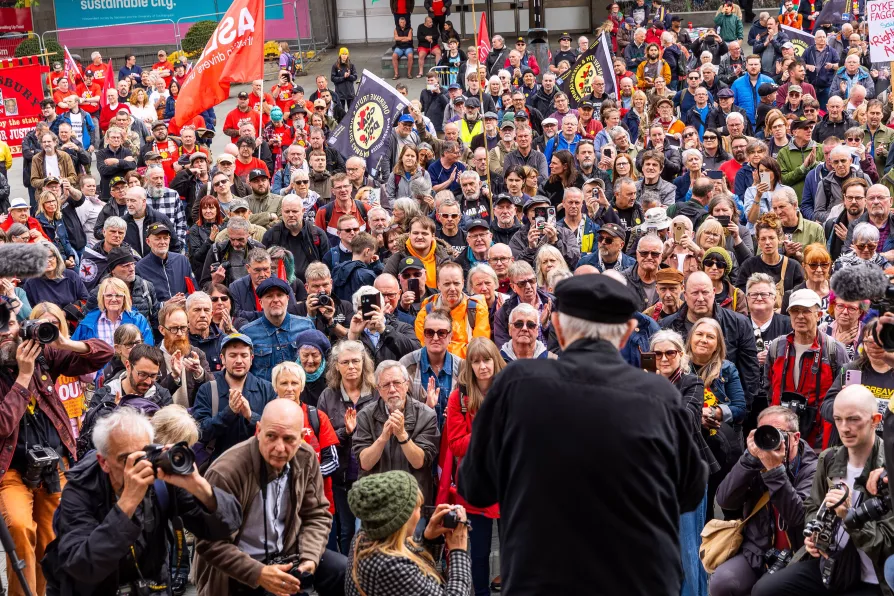
 Arthur Scargill speaking at the rally for Orgreave
[Neil Terry Photography]
Arthur Scargill speaking at the rally for Orgreave
[Neil Terry Photography]
THE cover-up and lies surrounding the infamous 1984 police attack on striking miners were laid bare by speakers at the Orgreave Truth and Justice Campaign annual rally in Sheffield on Saturday.
The rally marked the 40th anniversary of the police onslaught during the 1984-5 strike against pit closures and was held two days after the Labour Party election manifesto promised an “investigation or inquiry” into the events at Orgreave.
Arthur Scargill, who was president of the National Union of Mineworkers (NUM) during the strike, received a rapturous welcome from the crowd of more than 600 people.

The Home Secretary’s recent letter suggests the Labour government may finally deliver on its nine-year manifesto commitment, writes KATE FLANNERY, but we must move quickly: as recently as 2024 Northumbria police destroyed miners’ strike documents













